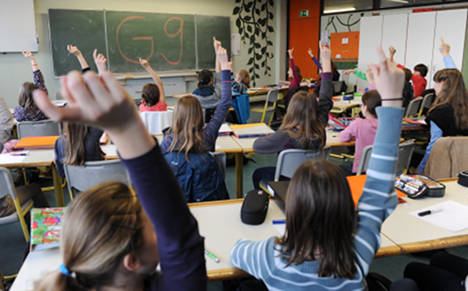Youngsters in grades five to nine at the Elsa-Brändström high school in North Rhine-Westphalia should have a lot more free time after the autumn holidays – as their school council have agreed to stop assigning homework.
Though pupils struggling in certain areas could still get the odd task to do, generally “no child would be having their free time dominated by doing school work” head teacher Brigitte Fontein told the Westdeutsche Allgemeine Zeitung on Friday.
Instead, teaching time would be used to do more work, as the school has mostly double periods, explained Fontein.
The decision was made after a longer school day was introduced at many high schools because a year was recently cut out of Germany’s high school system.
Because pupils were now being kept in school until 6pm in many cases, they should have time after this to unwind, Fontein said.
The German school system has come under fire from the Education and Science Workers’ Union (GEW) recently, which said that pupils are put under far too much pressure at school.
“Children have a right to free time, to play games in the afternoon,” said Cornelia Schiemanowski, head of the GEW in Oberhausen.
Michael von Tettau, also from the Elsa-Brändström school, said that for grammar school pupils, “there is barely enough time for sport or to learn a musical instrument.” Even a 44-hour working week was just too much, he added.
The new homework-free idea is to be test-run for the next two years, to see what kind of effect it has on pupils’ learning. Fontein added that the majority of parents and teachers seemed to be in favour of it.
Older pupils preparing to take their high school exam would not be included in the initiative. “Without homework, taking the exams would not be possible,” Fontein explained.
The Local/jcw



 Please whitelist us to continue reading.
Please whitelist us to continue reading.
Member comments